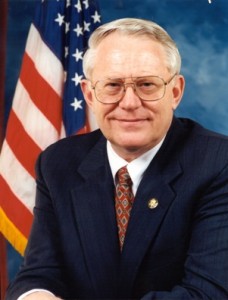
Instead of telling them to wait, the focus would shift to making teen alcohol consumption “less risky.” Then, strategies would be employed to make teen alcohol consumption “less risky.” School programs would teach teens how to drink, but also encourage them to use good judgment through messages like: “Wait until you know you are ready before you have your first drink.” They would be encouraged to drink alone before deciding to drink with each other. They would be told: “The only one who can decide when you are ready to drink is you.”
Knowing what we know about teenagers and their ability to assess risk and act accordingly, this sort of approach sounds ludicrous. Nevertheless, that’s precisely the approach we’ve been taking to sex ed for decades. It’s been a miserable failure, of course.
Nevertheless, the Department of Health and Human Services directs millions of dollars every year to programs like these that are based not on science but on the dated assumptions of the sexual revolution.
We do it right in other areas. Teens are simply told “no” when it comes to other risky activities like smoking, drinking, and driving below a certain age.
For those more interested in science than ideology, there is another approach to sex education, one with proven results. It’s called Sexual Risk Avoidance.
Last week, the House Energy and Commerce Committee released a report that examined the problem of teen pregnancies and STDs, and dug into the science behind adolescent behavior. The report, entitled “A Better Approach to Teenage Pregnancy Prevention: Sexual Risk Avoidance,” analyzed the methods used by the government to combat underage drinking, smoking, and reckless driving. These prevention programs each promote “risk avoidance” as the best strategy. The report notes that in each category, avoiding risky behavior and involving parents and peers in decision-making produces the best results.
The report also looks at brain development among teenagers. According to scientific research, the social and emotional network of the brain becomes highly activated at puberty, yet the cognitive network matures more slowly. This means that if a teenager is thrown into an emotional situation where he or she is expected to show good judgment, the emotional network of the brain will dominate the teen’s ability to weigh the consequences of his or her action. When teenagers are in open communication with parents and peers regarding risky behavior, however, their capacity for acting responsibly is greatly enhanced.
At his NAACP speech yesterday, Mitt Romney made the important point that (according to the Brookings Institution): “for those who graduate from high school, get a full-time job, and wait until 21 before they marry and then have their first child, the probability of being poor is two percent. And if those factors are absent, the probability of being poor is 76 percent.”
No sex ed program can replace good parental instruction. Nevertheless, we clearly owe it to our kids to give them the same effective guidance we give them about other risky, adult behaviors. We need to tell them to wait.
Congressman Joe Pitts (R) represents the 16th Congressional District of Pennsylvania and chairs the House Energy and Commerce Subcommittee on Health.
The views expressed by guest bloggers on the Foundry do not necessarily reflect the views of The Heritage Foundation.
![[Used for illustrative purposes]: Is sex education the answer?](http://cdnlive.albawaba.com/sites/default/files/imagecache/KeepAsIs//sites/default/files/im/Saudi_sex_education.jpg) [Used for illustrative purposes]: Is sex education the answer?
[Used for illustrative purposes]: Is sex education the answer? >The beds in London's athletes' village look comfortable, but are they big enough for two?
>The beds in London's athletes' village look comfortable, but are they big enough for two?



